During the Corona closure of our Munich Institute, the MGH invite you to join us on a trip through 200 years of medieval research history: The series “Treasures of the MGH Library and Archive” presents a treasure trove of rare and fascinating items illustrating key moments of our history. Enjoy discovering!
As of April 1 1935, the scholarly society named MGH officially ceased to exist: it was replaced by a national agency called the „Reichsinstitut für ältere deutsche Geschichtskunde (MGH)“ (the Reich institute for older German history). The Monumenta also received a new president: the 31-year-old regional historian and archivist Wilhelm Engel, since 1933 a member of the NSDAP and the SS. On December 8 1936, eight months after entering office, Engel presented his „Herren Mitarbeitern“ with an ordinance that they were to sign prohibiting them from using letter paper with the official letterhead of the „Reichsinstitut für ältere deutsche Geschichtskunde“ without express permission. Henceforth only Engel himself or the executive director, Hans-Eberhard Lohmann, were authorised to sign official correspondence. In his annual report for the year 1936, Engel explained that it was his underlying intent „to create an administrative working structure for the Reichsinstitut, such as it formally is since April 1 1935, as the basis for the systematic development of the institution as envisaged in the statutes, making it into the organisational hub for all activities serving the research and presentation of mediaeval German history.“ (Jahresbericht 1936, p. 583)
Wilhelm Engel, the „naive provincial archivist“, as Horst Fuhrmann characterised him, had succeeded to the post of the „supple minded and resourceful“ Paul Fridolin Kehr, to use Fuhrmann‘s words once again (for more on Kehr, see nos 11 and 12 in this series). Using his connections to the NSDAP, Engel had risen from working in the Thuringian archival service to an aide’s position in the ministry of science, education and culture in 1935. His appointment as commissary director of the „Reichsinsitut“ on March 25 1936 was the result of a power struggle between Walter Frank and Karl August Eckhardt, two leading Nazi historians of the day: in his efforts to supplant his rival, Frank connived to place Engel in charge of the new institute instead of Eckhardt.
The document above is the ordinance of December 8 1936 with the signatures of the following „Herren Mitarbeiter“ (from upper left to bottom right): Nelly Ertl, Karl Jordan, Dietrich von Gladiß, Carl Erdmann, Johannes Ramackers, Karl Strecker, Fritz Weigle, Ernst Perels, and Theodor Schieffer. Characteristic of the times is the inclusion of Nelly Ertl, a female historian, as one of the „Herren Mitarbeiter“.
Unfortunately, the annual report for 1936 entails no details about the terms and conditions of employment. As the „Reichsinstitut“ had almost no permanent staff, the editors were either living from scholarships or engaged on a poorly paid freelance basis. In February 1936, shortly before taking office as the director of the institute, Engel had inquired of the Reich ministry of science, education and culture as regarding the granting of research assignments to Jewish scholars. He received the answer that no objections existed against „the continuation or renewal of research assignments to Jews who have been released from employment or are retired. Research is no official activity. It can also be practiced purely on the basis of a private contract. (...) Politically, it would be imprudent to cancel existing research assignments. New contracts, however, are to be avoided.“ (cited in: Oberling, p. 198) Engel adhered to this guideline, allowing Ernst Perels to continue his work in the rooms of the MGH on the basis of the contract given him in 1931, although Perels had been forced into retirement shortly before on account of his Jewish ancestry. In the annual report for 1936, Engel does list the current projects and the editors working on them, including the edition of the Letters of Hincmar of Reims, which Ernst Perels was preparing – solely the name of its editor is missing.
Wilhelm Engel, who had come to the directorship through political intrigue, lost it by the same means, being removed after one year in office at the instigation of the „Sicherheitsdienst“ (SD), the intelligence service of the SS, whom he was supposed to be assisting. He was shunted off to the professorship for mediaeval history at the University of Würzburg.
A. Marquard-Mois
Engel, Wilhelm: Reichsinstitut für ältere deutsche Geschichtskunde (Monumenta Germaniae Historica). Jahresbericht 1936, in: Deutsches Archiv für Geschichte des Mittelalters 1 (1937), pp. 582-591. (digizeitschriften.de)
Bünz, Enno: Die Monumenta Germaniae Historica 1819-2019. Ein historischer Abriss. Digitaler Sonderdruck, p. 12. (PDF)
Gedruckt in: Mittelalter lesbar machen. Festschrift 200 Jahre Monumenta Germaniae Historica, 2019, pp. 15-36.
Oberling, Ines: Ernst Perels (1882-1945). Lehrer und Forscher an der Berliner Universität. Bielefeld 2005.
Learn more about this treasure of the MGH archive in: Karel Hruza: Ordnung muss sein, auch in der Behörde „Reichsinstitut für ältere deutsche Geschichtskunde“ – Über einen ausdrücklichen Wunsch Wilhelm Engels von 1936.



